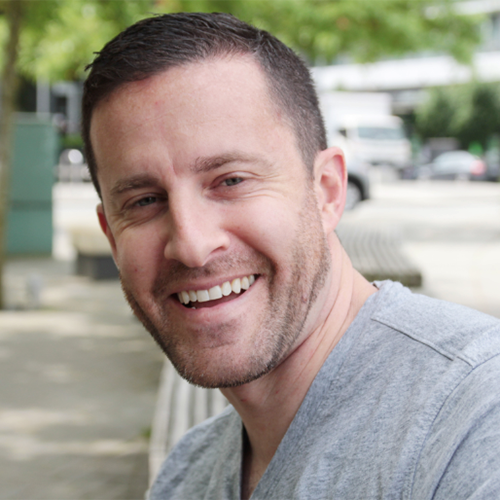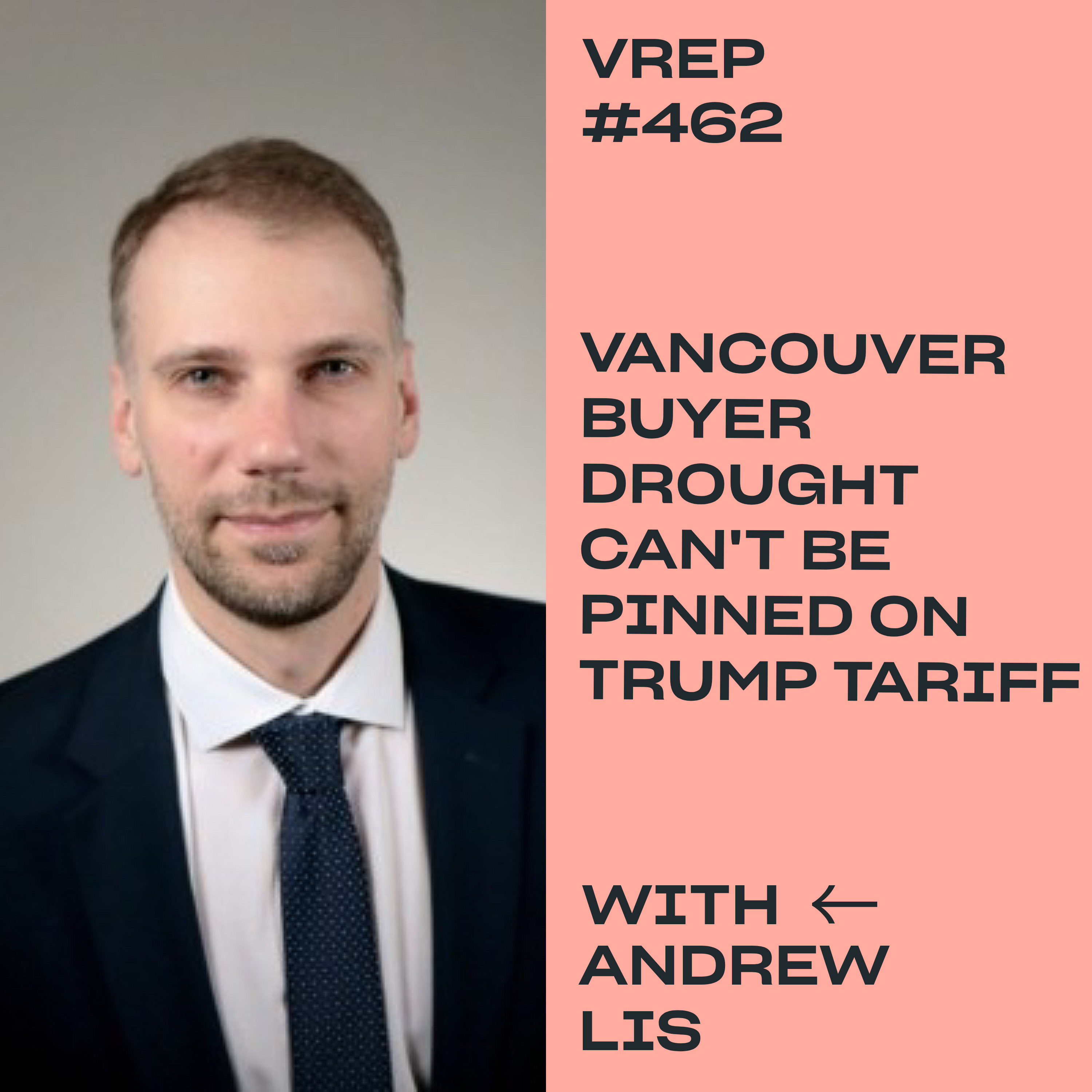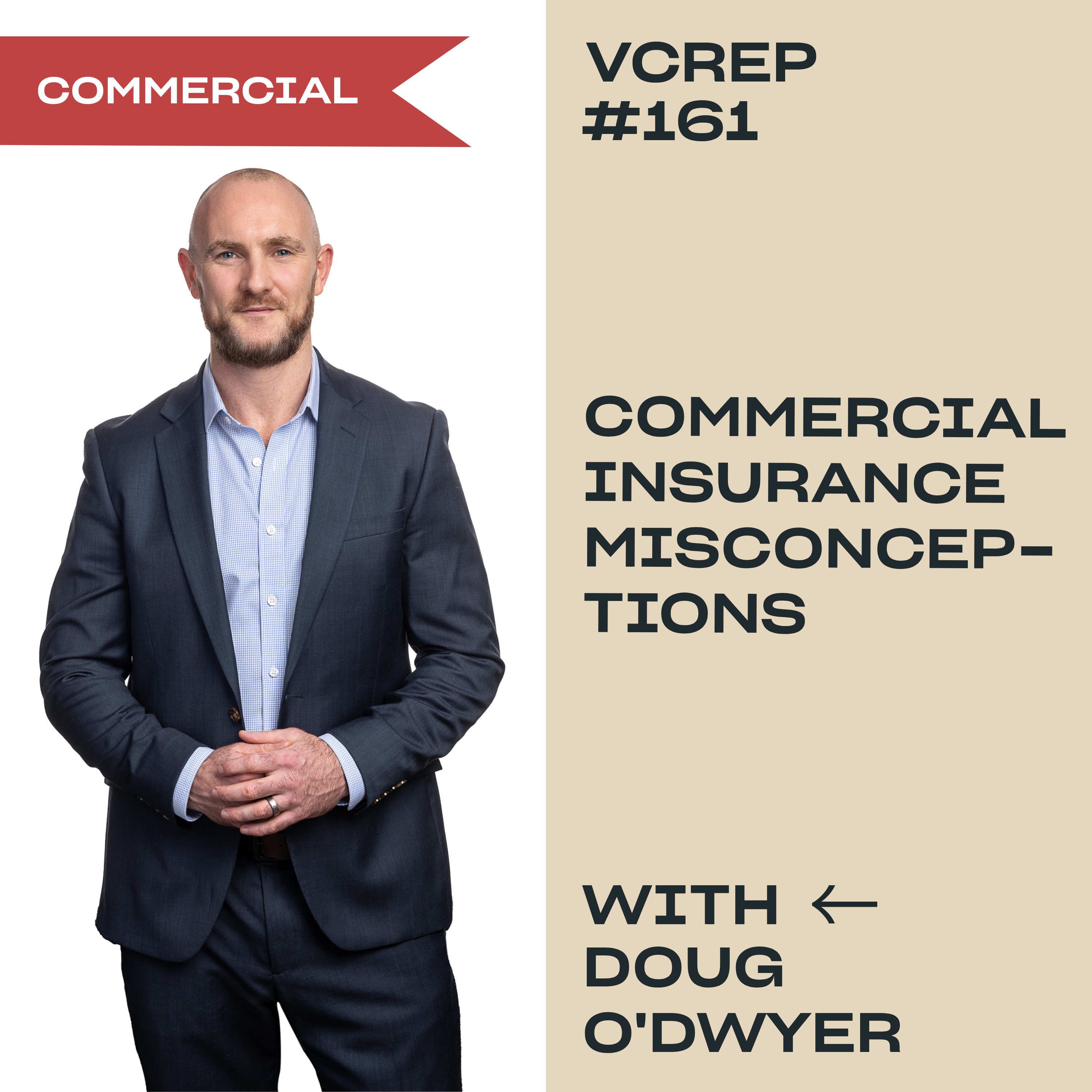Episode 276 – June 4, 2021
Listen On: Apple Podcasts | Spotify | Google Podcasts | YouTube | Stitcher
Opportunities only emerge when you know where to look. Anyone that understands Vancouver knows that the feeling of a neighbourhood can transform block by block but how should that inform your real estate decision making? Developer Jeremy Waldman and Project Marketer, Ben Amzaleg, sit down with Matt and Adam to discuss how their deep local knowledge of East Vancouver has led to the recent immense successes of projects like Strathcona’s Assembly and Mount Pleasant’s Habitat.
What makes a great buying opportunity? How does understanding a community and the target market impact decisions from soup-to-nuts? And, most importantly, how can you learn from the pros who have built on empire on getting this right? Tune in!
Listen to Episode
Guest Information

Jeremy Waldman
Jeremy Waldman is the Principle at Hudson Projects a local real estate development firm based in Vancouver. With 20 years of experience in real estate Jeremy is a well known developer who designs unique and forward-thinking sustainable communities. Follow him on Instagram or Facebook.

Ben Amzaleg
With over 15 years as a trusted real estate advisor, Ben Amzaleg is one the most recognized luxury real estate agents in Vancouver. Ben is the co-founder and principal of the Framework Group, a full-service real estate firm that specializes in pre-construction product design, sales and marketing strategies. Throughout his career, Ben has been awarded the Georgie Award, Oakywn’s Master Sales Award, and Greater Vancouver Real Estate Board Medallion award. Connect with Ben on Instagram at ben.amzaleg.
Episode Summary
Jeremy Waldman and Ben Amzaleg share how leveraging deep local knowledge can lead to great success.
*disclaimer: the information contained below and in the companion audio podcast are intended solely as legal information for personal use and should not be considered legal advice*
Keep your finger on the pulse of Vancouver’s real estate market with our Live Wire email newsletter.
About Jeremy Waldman
I’m the Principal at Hudson. I’m a local guy; I was born at St. Paul’s and studied at UBC. As part of that program, I studied in Sydney and then did my Masters in Melbourne. I also got some experience in Asia. But after graduating, I came back to Vancouver. The real estate market was on fire here. I’ve led my professional life in Vancouver and have been in real estate for 20 years.
About Ben Amzaleg
I got my real estate licence 13 years ago and wanted to be a realtor. A friend of mine, who is now my business partner, introduced me to project sales. I really enjoyed project sales and have really focused on the presale world since then. Our company, Framework, is relatively new but my partner and I have over 25 years of experience. And we love working on projects with great people, like Jeremy.
What attracted you to presales?
Ben: I like the storytelling aspect of it. You’re painting a picture of what a home will look like in 2-3 years. The challenges you have to overcome to make the sale really drew me in. The better you are at creating the offering and overcoming objectives, the more success you’ll have. If I’m not challenged, I’m not interested. When I did 20-30 resales a year, I felt okay. In presale, you do 200+ per year and you’re constantly on.
That constant challenge is really what drives me.
Were you immediately drawn to development?
Jeremy: I’ve always been a very inquisitive person and have always been very entrepreneurial. I have always marched to the beat of my own drum. I thought I was going to be a mechanical engineer until a cousin shared with me the realities of being an engineer. I decided it wasn’t for me so thought I’d give business a try. By default, I fell into urban land economics and real estate.
When I graduated, I became a designated commercial appraiser. I was really exposed to that side of the business and it took off from there. After grad school, I worked with a few developers and learned what to do and what not to do before starting my own company about 10 years ago.
How do you transition from working for other developers to starting your own development company?
Jeremy: I bought my first condo in Kitsilano when I was 21. I renovated it myself, flipped it and then used that profit to do my Masters, travel, put a down payment on my second condo and invest in my first commercial project. I’m good at finding opportunities and thinking outside the box. I put very little skin in the game but it was all that I had. A good family friend encouraged me to go out on my own and invested in me. I wanted to make sure that my first project, and everyone after that, was a success.
We’ve done a lot of joint venture deals. My first project was 626 Alexander but we knew what we were doing. Hudson has always been in the background and we haven’t put our name on many projects until recently. It’s been a pleasure to see buyers follow us.
When do developers bring you in for marketing, Ben?
Ben: As a marketing company, we ideally want to come in as soon as they’ve purchased the land. But it depends on the developer. Sometimes they reach out after units and sizing are already determined. Usually, the earlier the better but in reality, it doesn’t always happen like that. Developers should be engaging the marketing company way in advance. An architect can design an amazing building but that doesn’t mean it’s sellable.
What areas are you most excited about in Metro Vancouver?
Jeremy: East Vancouver is our backyard. Vancouver is a small city and we know that. We live and breathe Vancouver and know the different neighbourhoods. We invest in neighbourhoods that are walkable, unique and close to transit. We look for the opportunity. Who is the buyer? We’re excited about Commercial Drive, Cedar Cottage, Fraser and Strathcona.
If we are excited about a project, we will do the project.
Ben: I live in East Vancouver off Commercial Drive and I would have to agree. I initially lived downtown and as the family grew, I chose Commercial Drive. I love the walkability. The people who live there are real. I like the vibe. You have a really fun and eclectic group of people. So for me, I’m excited about East Vancouver and Commercial Drive in particular.
Do you think the push towards urbanism and walkability is transforming the city?
Jeremy: What’s transforming the city is what’s happening with patio permits right now. I hope it stays. We’re seeing a fast tracking of patio permits and neighbourhoods taking back the streets. People are walking to their local restaurants and sitting outside instead of driving and parking on the street. There’s this liveliness to Vancouver that I hope stays.
The fact that the City of Vancouver has a minimum parking count is archaic. Buyers still want parking so there is a shift, but not as much as we think.
Ben: It’s basic supply and demand. In buildings where there are less parking spots than the number of homes, parking demand goes up. In 2021, there is still a market for parking stalls. Even with more transit and more bikes, people still own cars. If you’re building a tower downtown with small one bedrooms, it’s fine not to sell a parking stall. But if you’re outside of the downtown core, people want to have their car. It’s still something developers can monetize on.
Walkability is something we see that’s very much in demand. Buyers want to know if they can walk to the grocery store, coffee shop, restaurants, etc. We emphasize on these amenities you can walk to in our marketing campaigns. A five minute walk is more valuable to those buyers than a five minute drive. Buyers want to get out and walk, rather than drive.
Let’s talk about Assembly in Strathcona. What do you like about Strathcona? What made you buy a property there?
Jeremy: Assembly is a partnership between Hudson and Fabric. We’re like minded developers. We did all of the branding and visioning over Zoom. Strathcona is a little different than Mount Pleasant. There are gems that are walkable but you have to roll up your sleeves. Most people who live in Strathcona are moving there for the first time. We spent time educating ourselves so we could share those gems with our buyers.
What we liked about the project was that it was unique, it wasn’t a set of problems it was an opportunity we looked at and got excited about.
It’s modest in scale but an opportunity to placemake in Strathcona.
Ben: Jeremy came up with this opportunity and when we went to look for comparables, we couldn’t find any multi-family offerings. We did a tour with a historian in Strathcona and it is the oldest community in Vancouver. Over the years, the city didn’t want to lose the value of the neighbourhood. So there are no multi-family offerings in the heart of Strathcona.
When we started thinking about values, we had to look outside of Strathcona. We had to establish new value in the community for a project that did not exist. It was a very interesting discussion to figure out what people will pay. We’ve noticed that people will pay more than we initially thought. Jeremy and Jordan created a project that has never existed in an area that has never had it before.
Jeremy: The initial zoning was industrial office. We worked with the community to create a plan to house families on the top levels and retail/office on the ground floor. We saw an opportunity to design the project right and have demand for those larger homes.
How do you analyze a deal? Was the play always residential?
Jeremy: We questioned it for three years. We looked at it under the initial zoning but decided the mix-use commercial/residential zoning was the right move for the community. So we went through the rezoning process.
When we buy a site, we spend a lot of time in the community. I go for coffees and meals for a few weeks in that neighbourhood. We delve into who the demographic is and see how we can push value. This project checked off every box for us.
We spent a lot of time on the upfront public consultation. We spent a lot of time on design. Spending time in the neighbourhood and having a face to the project goes a long way.
We spend a lot of time in that neighbourhood and delve into who the demographic is, and we determine whether it’s a project finicanlly that makes sense.
Can you tell us more about the commercial space at Assembly?
Jeremy: Almost the entire ground floor is commercial space. There’s a mews that bisects the entire ground floor to make this public/private space. This allows us to evoke some interest because the public can walk through the space during the day. It creates a smaller, more affordable, commercial space too. We have a local coffee roaster, a restaurant, and a design firm that are looking to buy their first space.
How many homes does Assembly have?
Ben: There are 40 homes up for sale and we’ve released 36. What Jeremy and Jordan do is they don’t release 10% of a project because they’re confident it can sell for more money when it completes. We sold all 36 released units at our grand opening, which was amazing. We had over 5000 people interested and only 36 units to sell. So they decided to release the other four homes and we will have those final four available to sell now.
How did you navigate covid with this project?
Jeremy: We launched two projects during covid and actually launched the first project in Vancouver during covid, that was Habitat. We saw pent up demand. Even if the city isn’t growing as much, there’s still demand for housing across the spectrum. There weren’t many transactions happening at the beginning of covid but people were online and looking for housing, so our registrant activity was very high.
Our projects are 5-6 years. If we lost sleep over every blip in the market, we’d never sleep. These are long term projects. We see continued demand in Vancouver for well-built projects, which these are. We saw demand for Habitat and we saw that for Assembly as well.
Ben: With Habitat, we really saw a demand for outdoor space that’s bigger than your tiny balcony. We learned how much we could sell those big outdoor spaces for. That collaboration and knowing there’s that demand transitioned into Assembly. We wanted to showcase that outdoor space at Assembly knowing how attractive that is for buyers.
Are you surprised how strong the pre-construction market is?
Ben: The presale market in Vancouver has been primarily driven by investors. The stuff that Jeremy builds is aimed mostly towards end-users. There are some investors, but it’s mostly end-users. Currently, people want to spend more on their living arrangements. They want that attention to detail and great design. There will always be a market for the type of product that Jeremy is building. Through a global pandemic, we saw two projects that sold almost instantly.
You generally see a lot of pressure in the resale market which results in frustrated buyers. That’s where presale comes in. Buyers are willing to rent for two more years knowing they will get the perfect home and don’t have to worry about multiple offers.
What do you think the rest of 2021 and onward look like for real estate?
Jeremy: I think we can weather most things. There are peaks and valleys. Our projects are 5-6 years each and we roll with the punches. From week to week, we don’t worry about changes. I think we’ve gone through that pent up demand from covid but demand is continuing. We’ll have a more stable remainder to 2021 and that’s a good thing. But we’re still seeing continued demand from end-users for well-designed projects. We have two more projects launching before the end of 2021 and I think we’ll do well with them.
If you were looking to buy in Vancouver right now, where is the biggest opportunity?
Jeremy: I think it depends if it’s a home or an investment. If you love the home, buy it if you can afford it. It’s hard to look at it as an investment when it’s a home. For an investment, shameless plug: we have three homes left at Habitat.
Ben: Anywhere along a skytrain station or rapid transit is a great investment. And outdoor space!
The 5 Wire
What’s your favourite neighbourhood(s) in Vancouver?
Jeremy: Commercial Street! A local, walkable community.
Ben: Gastown! Water Street is one of the nicest streets in Vancouver.
What’s your favourite bar or restaurant?
Jeremy:
- Ubuntu Canteen
- Flourist
- The Mackenzie Room
- Say Mercy!
- Ho Yuen Kee
- Toshi Sushi
- Timbertrain Coffee
- Nightingale
- Ophelia
- Red Wagon Cafe
Ben:
What is one book you would recommend to our listeners?
Jeremy: Happy City – Charles Montgomery
Ben: The Alchemist – Paulo Coelho
One piece of advice you would give your 18-year-old self?
Ben: “It’s going to be just fine.” The lows are a part of your journey, look back and learn from them. That is how you grow.
Jeremy: Go away to school if you have the opportunity and TRAVEL.
What is something you have purchased for under $1,000 that has positively changed your life?
Jeremy: Google Translate App and the Dropbox App.
Ben: A great quality cooking set of new pots and pans.
Episode Hosts

Adam Scalena
Adam is a full-service realtor, specializing in Vancouver’s best areas. His systematic approach to real estate and dedication to his clients has consistently placed him within the top 10% of realtors operating within Greater Vancouver.

Matt Scalena
Matt is real estate obsessed and considers himself a lifelong student of the Vancouver real estate market. As a co-manager of the Scalena Real Estate team, Matt prides himself on expertly advising buyers and sellers on all aspects of the fast-paced, dynamic Vancouver real estate market. He is present at every stage of the process, from that first phone call or email right through to when keys are exchanged between sellers and buyers.
Episode Sponsor
VREP2020 for realtors who want to join and get a special sign up bonus.





